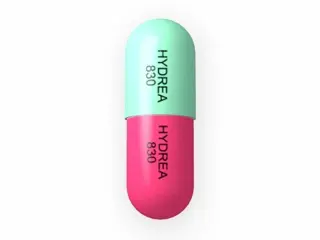Cancer
Explore our wide range of cancer medications and supportive care products designed to help you manage treatment effectively. Find trusted, high-quality pharmaceuticals to support your health journey.
Cancer is a serious illness that requires careful treatment. Many medications help control or kill cancer cells. These drugs vary in how they work and what cancers they treat. Here we review some popular medicines in the cancer category.
Aldara is a topical medication used mainly for skin cancers and precancerous conditions. It contains imiquimod. Aldara boosts the immune system. It helps the body fight abnormal cells on the skin surface. It is often prescribed for basal cell carcinoma or actinic keratosis. The cream is applied directly to the affected skin area. Some patients may experience redness, swelling, or irritation. This is common and usually lessens with time.
Alkacel is a brand name for a chemotherapy drug called cyclophosphamide. This medication works by stopping cancer cells from growing. Cyclophosphamide treats various cancers such as lymphoma, leukemia, and breast cancer. It is given orally or through injection. Blood tests are needed to monitor side effects like low white blood cells or anemia. Alkacel can cause nausea, vomiting, and hair loss. Proper hydration is important during treatment.
Armotraz contains anastrozole, a drug used mainly in breast cancer therapy. It lowers estrogen levels in the body. Many breast tumors need estrogen to grow. Reducing this hormone helps slow or stop cancer growth. Armotraz is taken as a pill once daily. Common side effects include hot flashes, joint pain, and fatigue. It is mostly prescribed for postmenopausal women with hormone receptor-positive breast cancer.
Capnat includes capecitabine, a chemotherapy drug given as oral pills. Capecitabine transforms into 5-fluorouracil in the body, interfering with cancer cell DNA. It is used for colon, breast, and stomach cancers. Treatment cycles are followed by rest periods to allow recovery. Side effects may include diarrhea, hand-foot syndrome, and mouth sores. Regular blood tests are needed to prevent complications.
Casodex is a brand for bicalutamide, a medication used in prostate cancer treatment. It blocks the effects of male hormones like testosterone that fuel prostate cancer growth. Casodex is typically taken orally once per day. It is often combined with other hormone therapies. Side effects include breast tenderness, hot flashes, and fatigue. Liver function must be monitored during therapy.
Hydrea contains hydroxyurea, a drug used in certain blood cancers like chronic myeloid leukemia. It helps reduce the number of abnormal blood cells. Hydroxyurea slows cancer progression and relieves symptoms. It is taken as a pill daily. Common side effects include low blood counts and increased infection risk. Regular blood monitoring is essential.
Leukeran is the trade name for chlorambucil, a chemotherapy drug used in chronic lymphocytic leukemia and other cancers. Chlorambucil works by damaging DNA in cancer cells. It is an oral medication taken daily or intermittently. Side effects include nausea, bone marrow suppression, and increased risk of infection. Doctors carefully adjust doses for safety.
Methotrexate is a well-known medication used in various cancers like leukemia, breast cancer, and lymphomas. It interferes with cell growth by blocking a vitamin needed for DNA synthesis. Methotrexate can be given orally, by injection, or IV. Side effects vary but may include nausea, mouth sores, and liver toxicity. Close monitoring is necessary during treatment.
Nolvadex, containing tamoxifen, is a common drug to treat hormone receptor-positive breast cancer. It blocks estrogen receptors on cancer cells. This prevents estrogen from fueling cancer growth. Nolvadex comes as a daily pill. Side effects may include hot flashes, risk of blood clots, and uterine changes. It is also used to reduce breast cancer risk.
Xeloda is another brand of capecitabine, similar to Capnat. It is a widely used oral chemotherapy drug for colorectal and breast cancers. Xeloda offers patients an alternative to IV chemotherapy with oral dosing convenience. Common side effects include fatigue, diarrhea, and hand-foot syndrome. Regular check-ups help manage these effects.
Zofran, or ondansetron, is not a chemotherapy drug itself but very important in cancer care. It prevents nausea and vomiting caused by chemotherapy. Zofran is taken before or after chemotherapy as a pill or injection. It helps patients tolerate cancer treatments better. Side effects are usually mild, such as headache or constipation.
Each of these medications plays a unique role in cancer treatment. Some target cancer cells directly, while others manage symptoms or side effects. Patients should follow their doctor’s instructions closely. Regular monitoring helps adjust doses and ensures safety. Always report any side effects to healthcare providers promptly.
Choosing the right medication depends on the type of cancer and patient health. These drugs often work in combination for better results. Despite side effects, these medicines improve survival and quality of life for many patients. Good communication with the medical team is key to successful treatment.










